LB5240: Cross-Cultural Leadership Workshop for Australia & Japan
VerifiedAdded on 2022/08/23
|12
|827
|12
Presentation
AI Summary
This presentation provides a comprehensive overview of cross-cultural leadership, specifically focusing on the challenges and opportunities for Australian leaders conducting business in Japan. The workshop explores the importance of understanding cultural differences, traditions, and languages to effectively engage with Japanese counterparts and consumers. It delves into the agenda of the workshop, including leader attitudes, communication barriers, and time allocation. The presentation highlights the use of resources like cultural awareness and the Hofstede cultural dimension theory to facilitate cross-cultural leadership. It also contrasts the cultural dimensions of Australia and Japan, emphasizing the need for leaders to adapt and develop strategies for leading multicultural teams. The presentation concludes by summarizing key aspects of cross-cultural leadership, cultural dimensions theory, and the workshop process, offering valuable insights for leaders aiming to improve their global business strategies. The presentation emphasizes the application of the knowledge gained from the workshop to achieve future goals in the country of Japan. The presentation also includes references to support the analysis.
1 out of 12

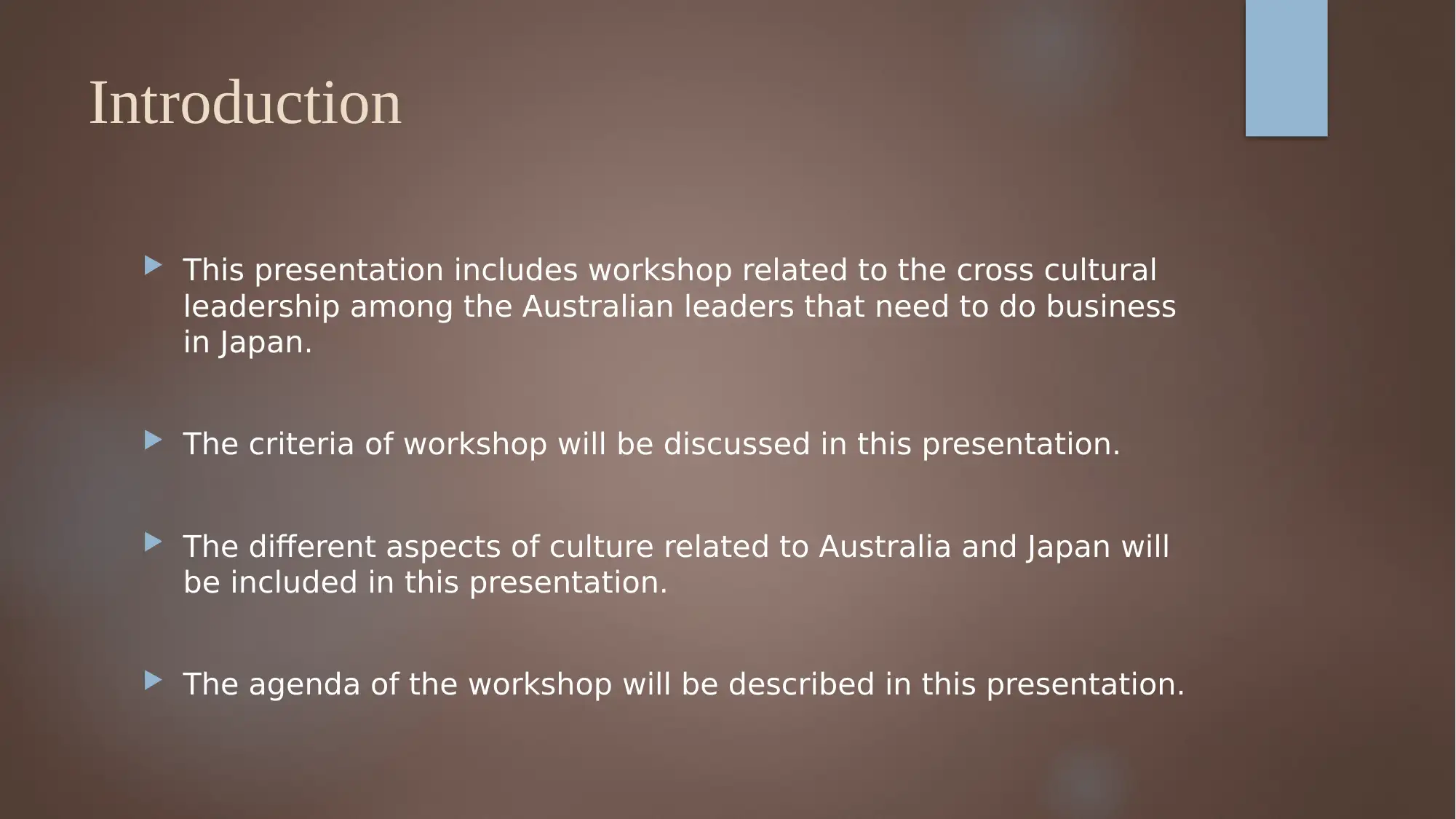
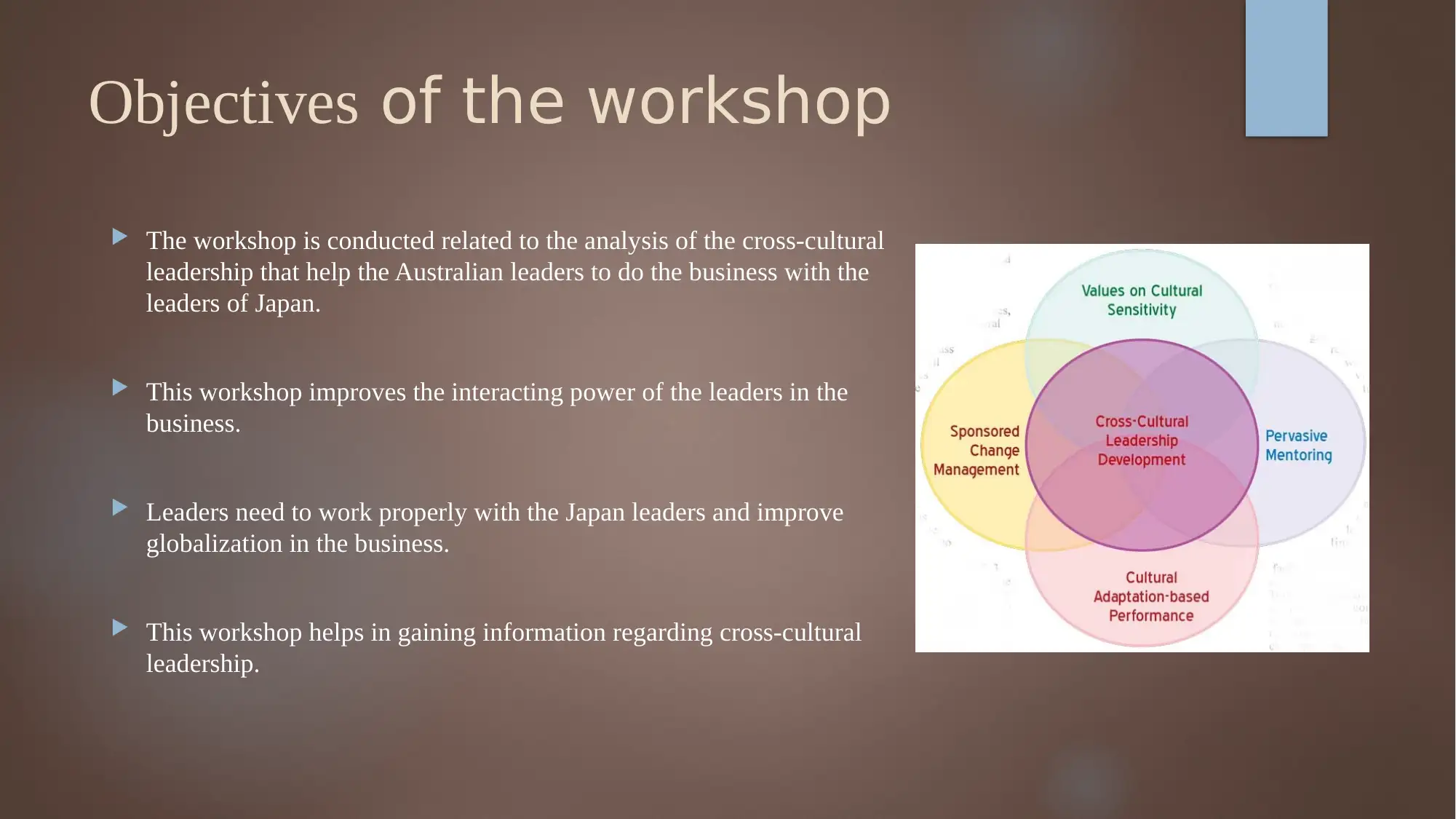

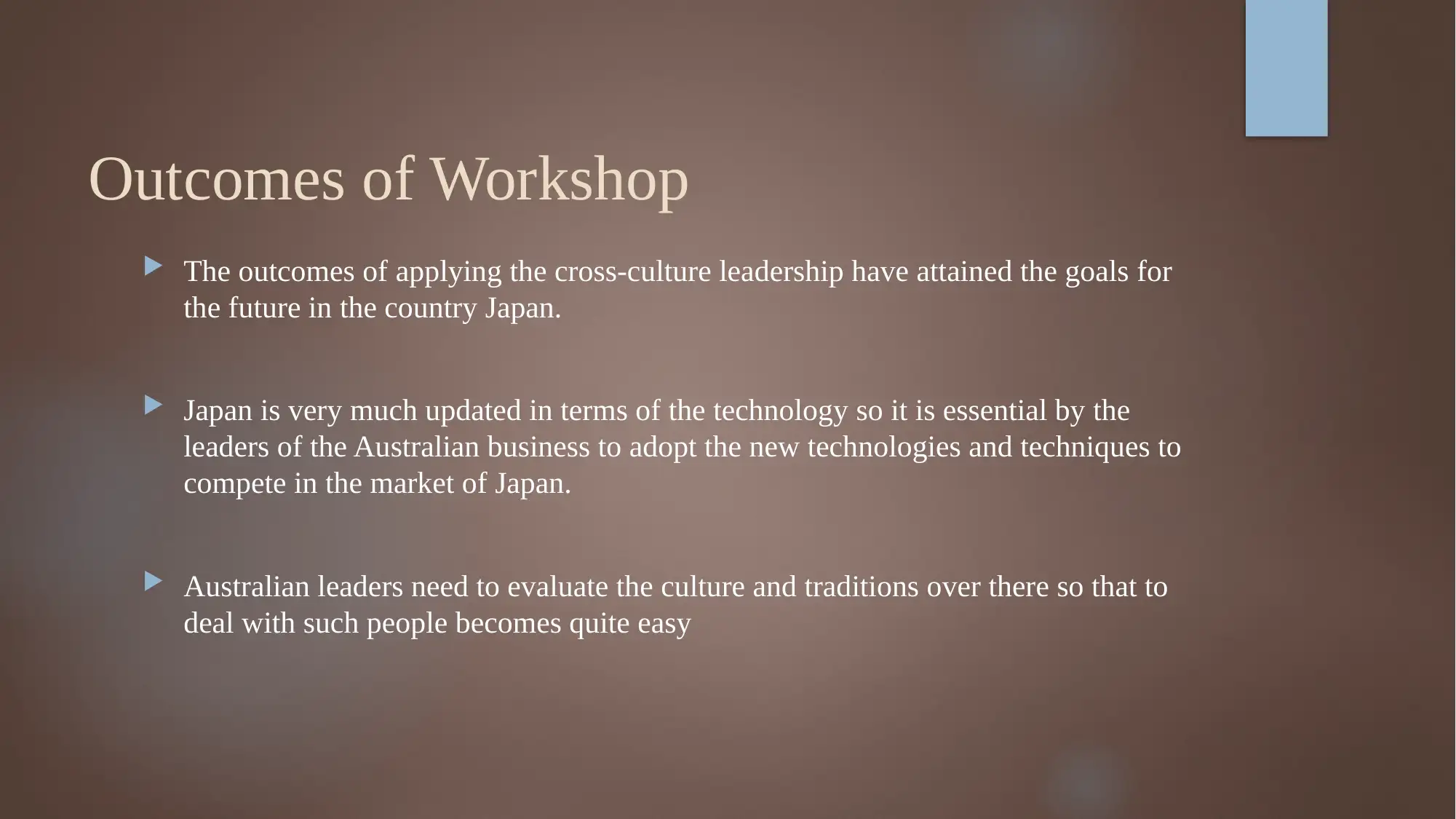
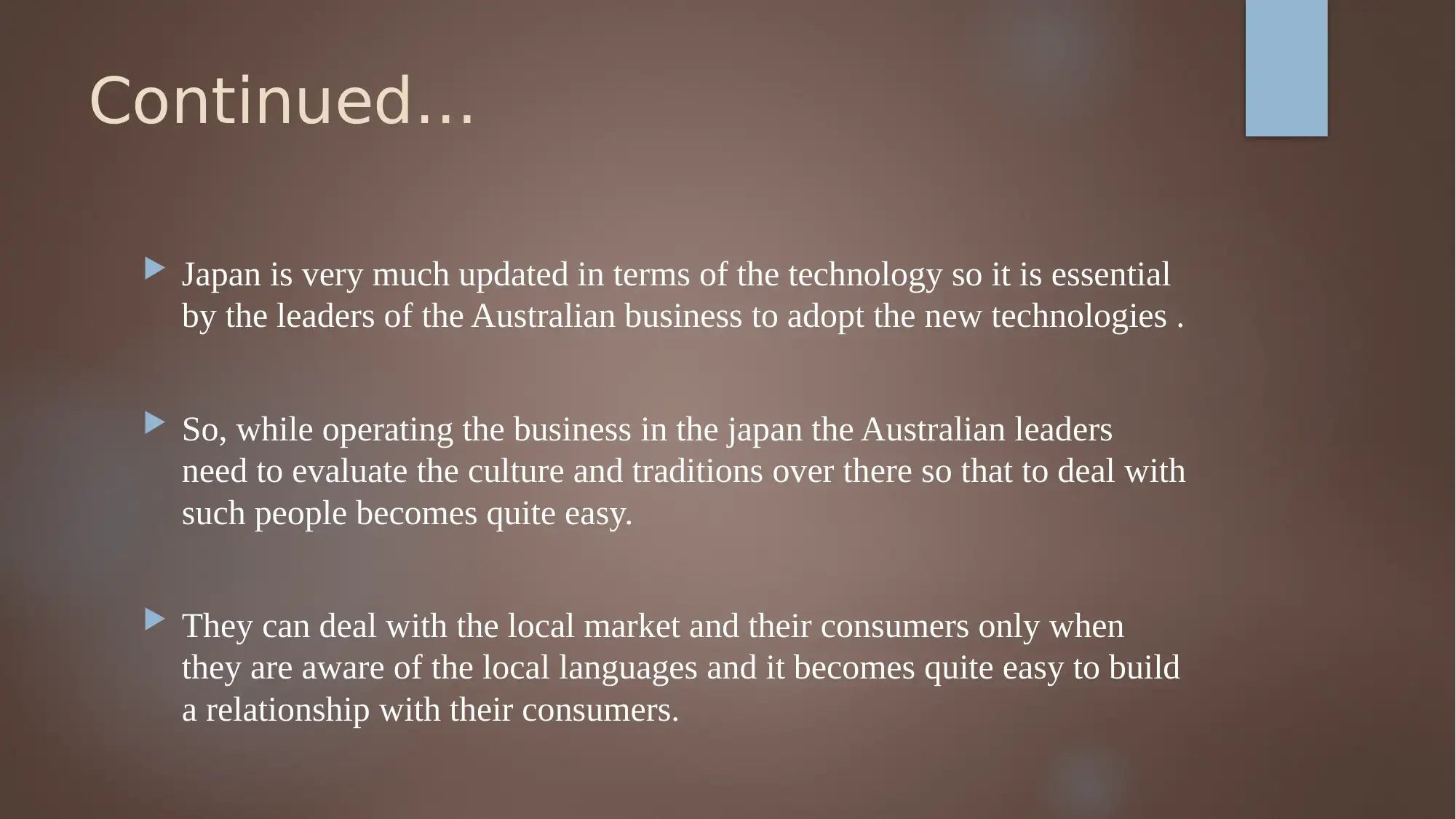
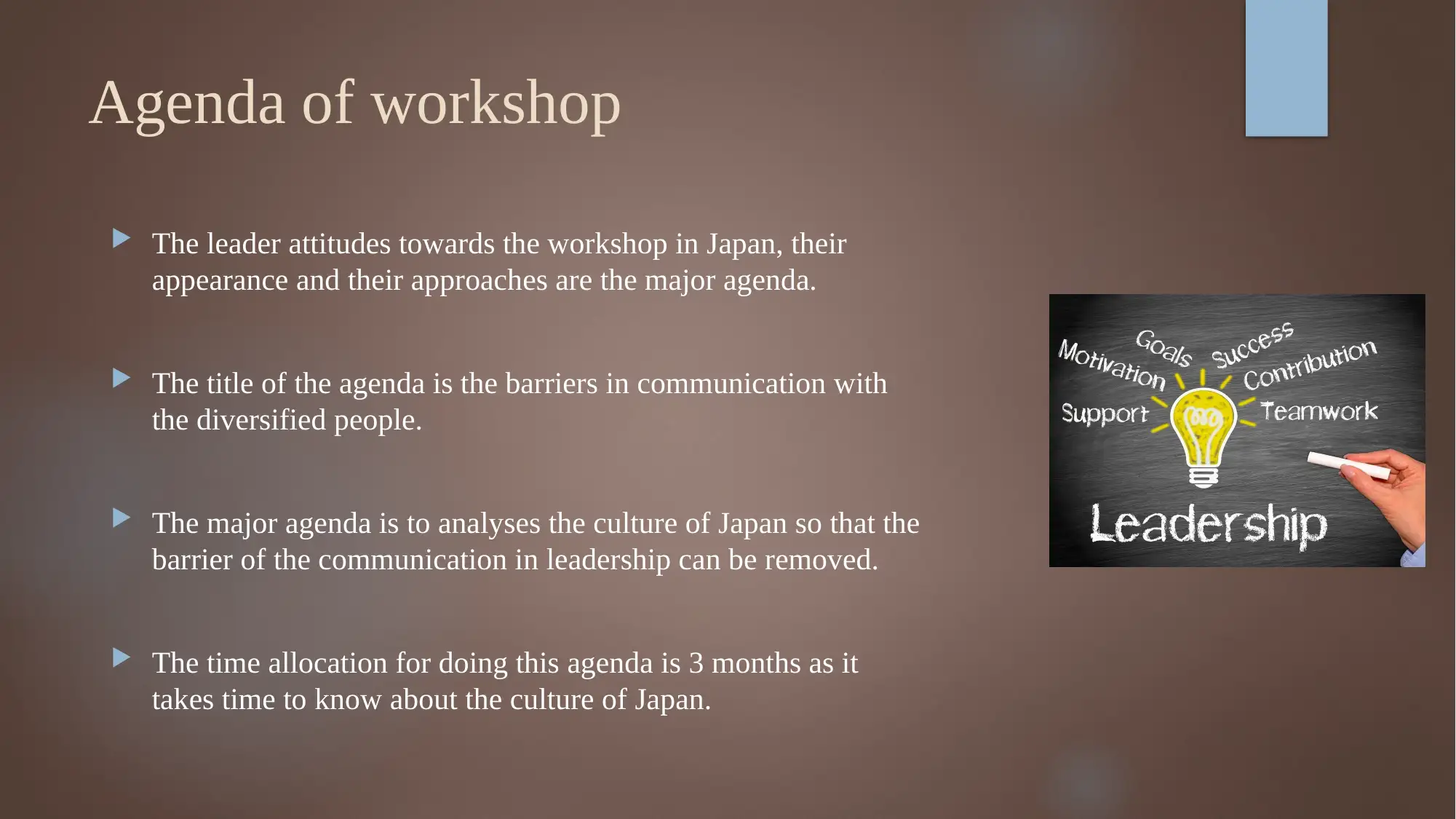
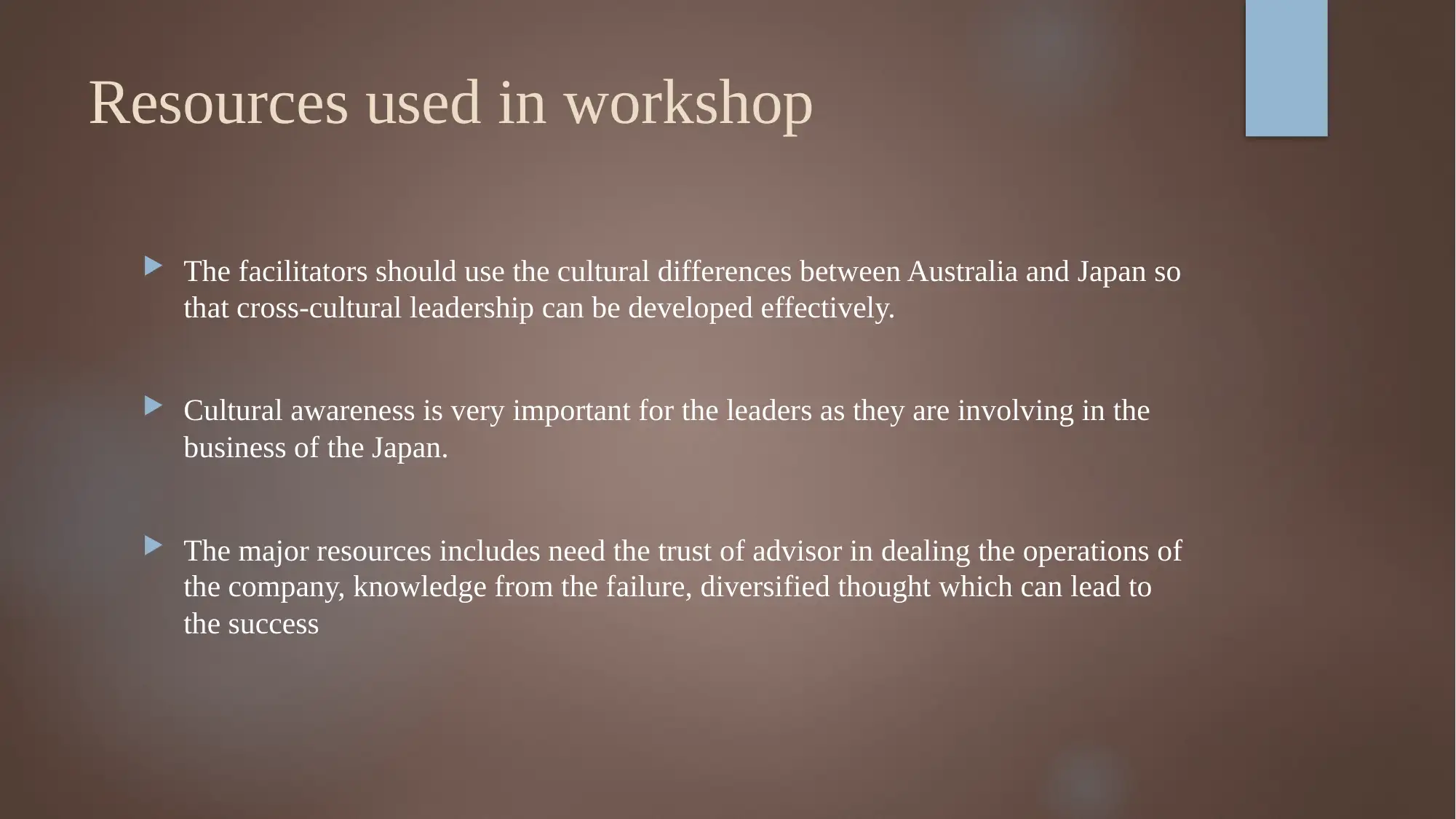
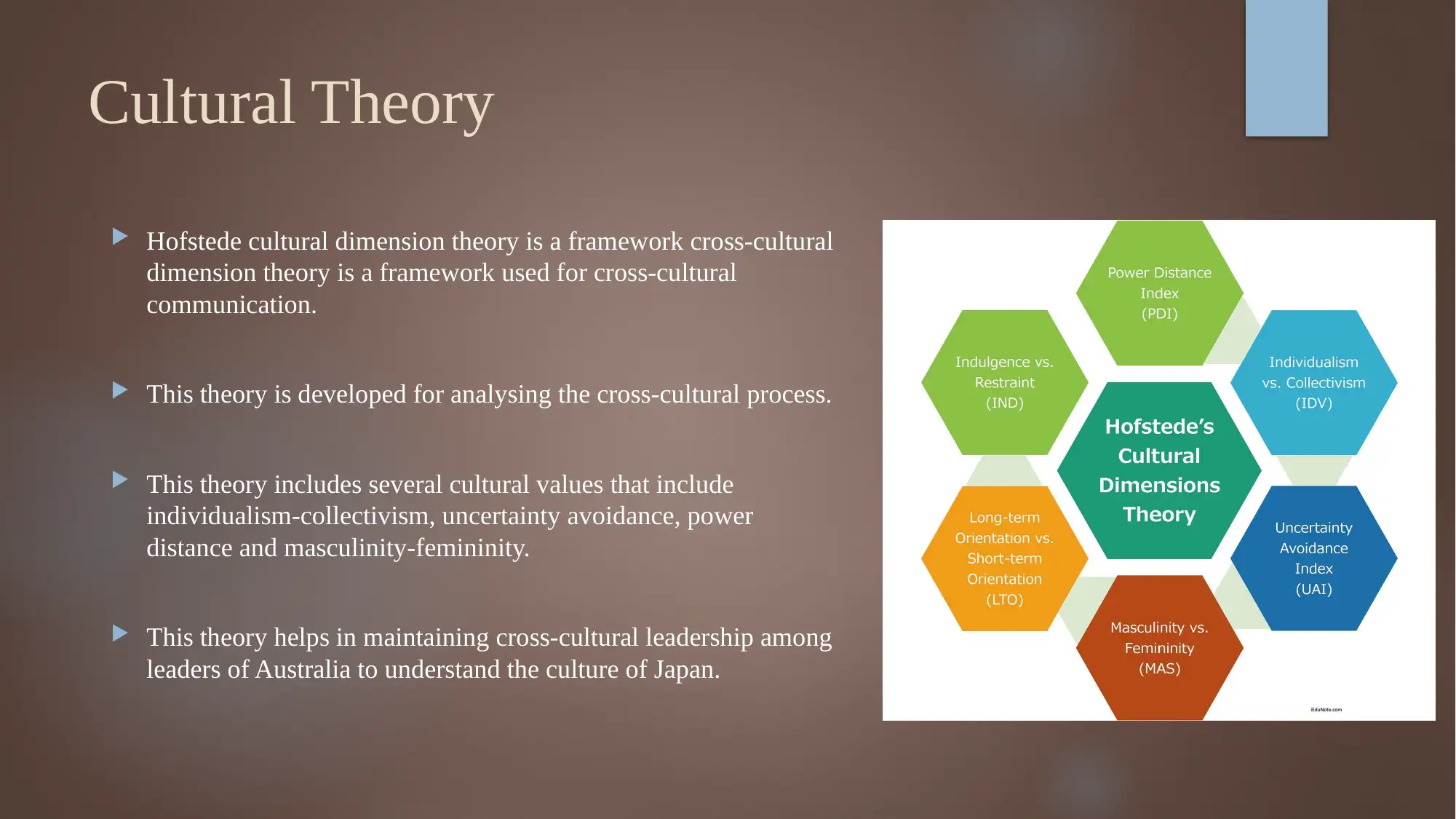
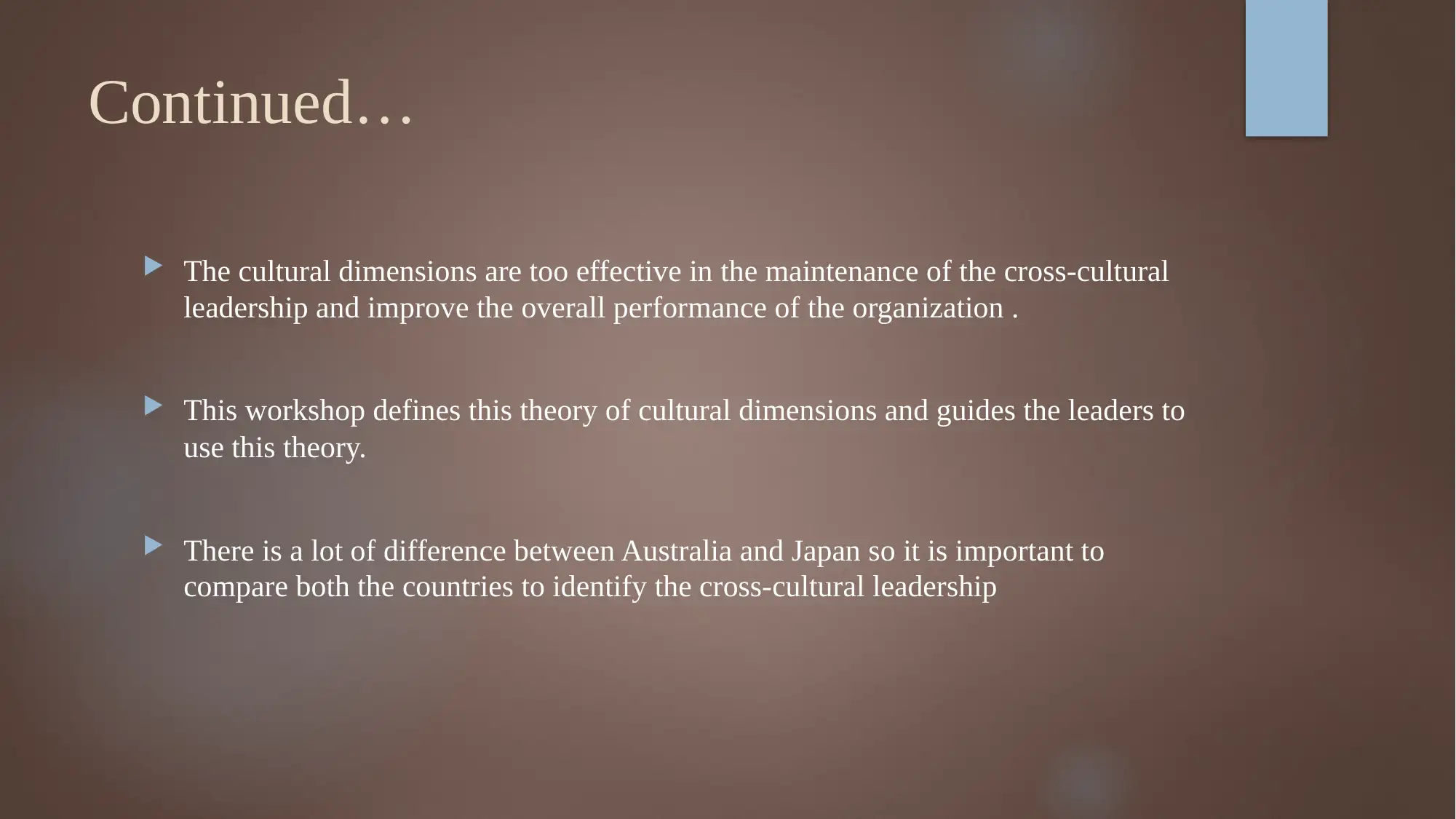
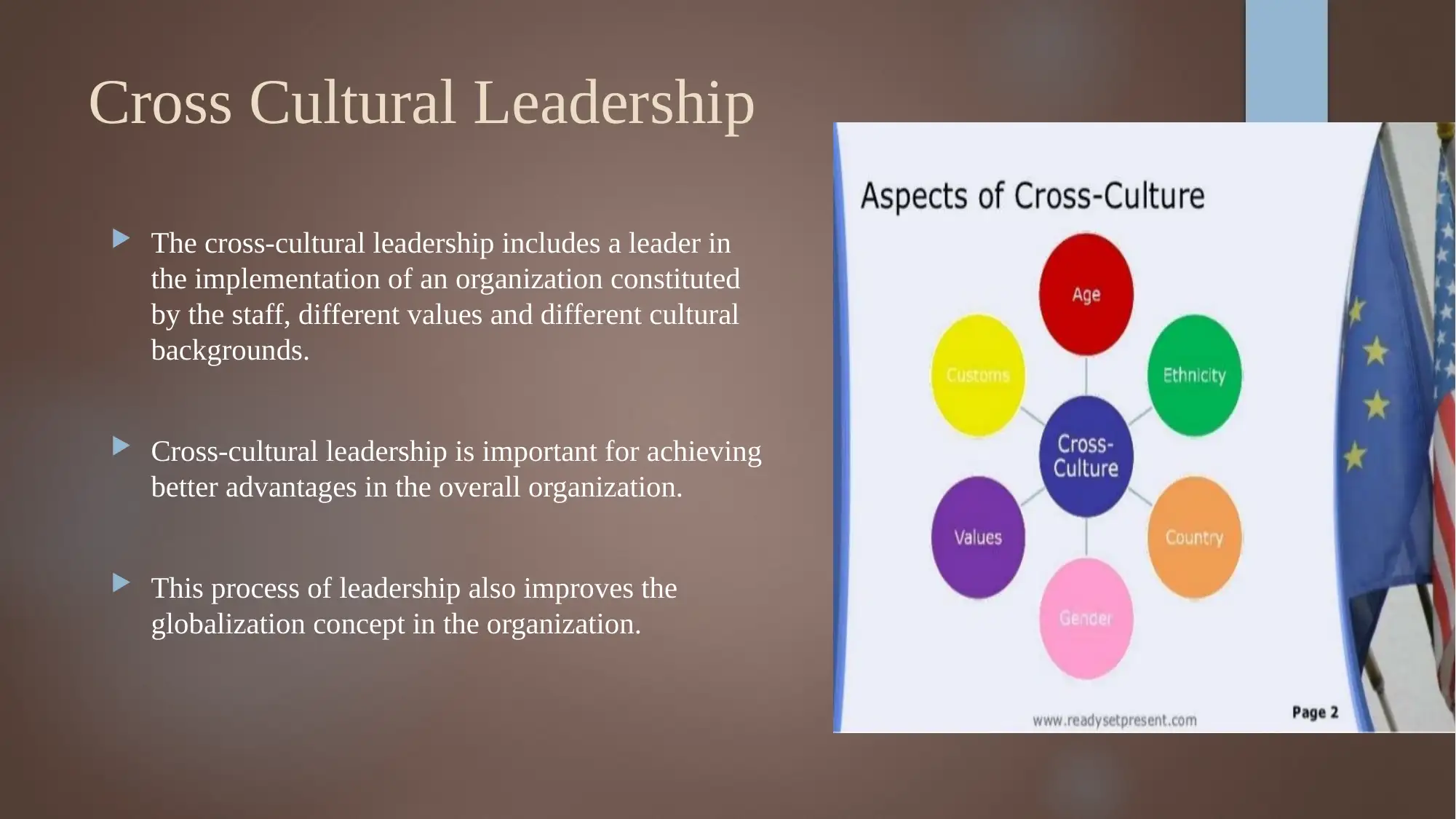
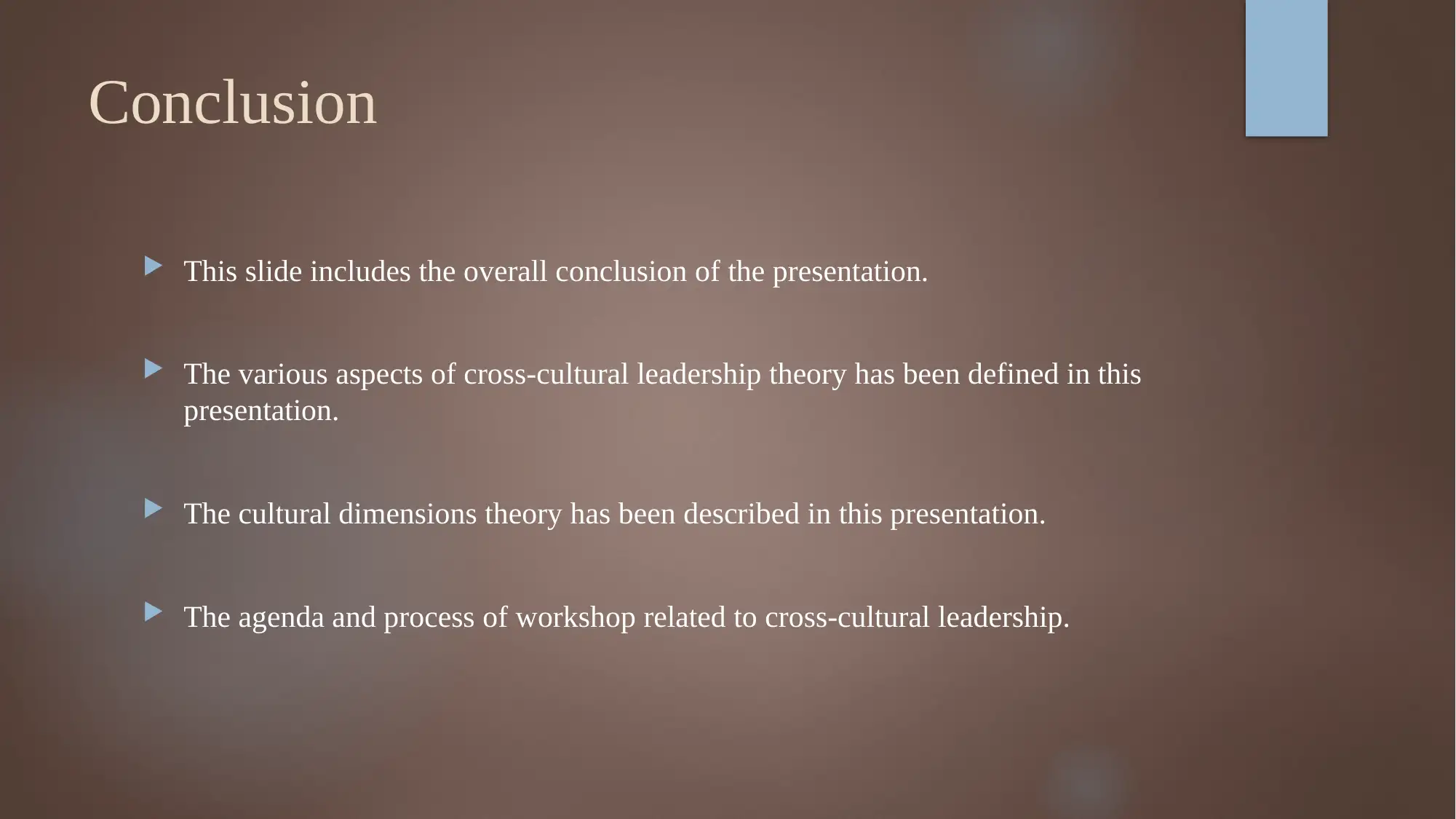
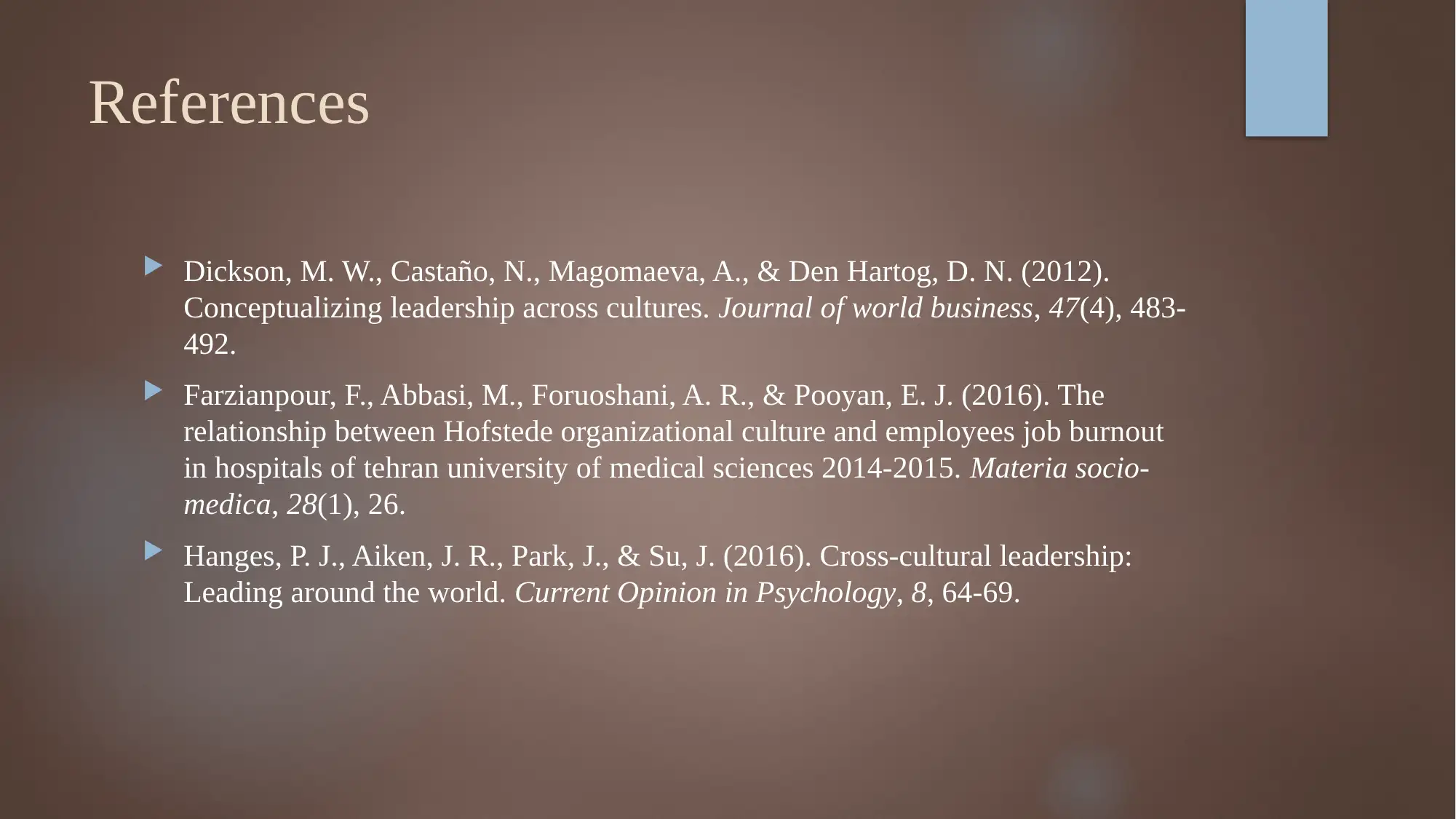






![[object Object]](/_next/static/media/star-bottom.7253800d.svg)